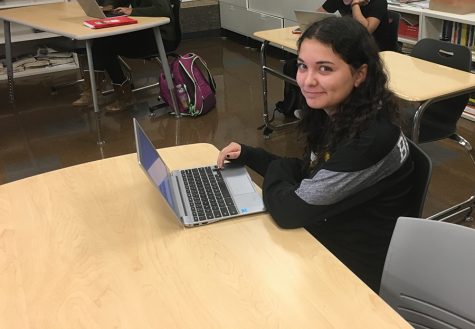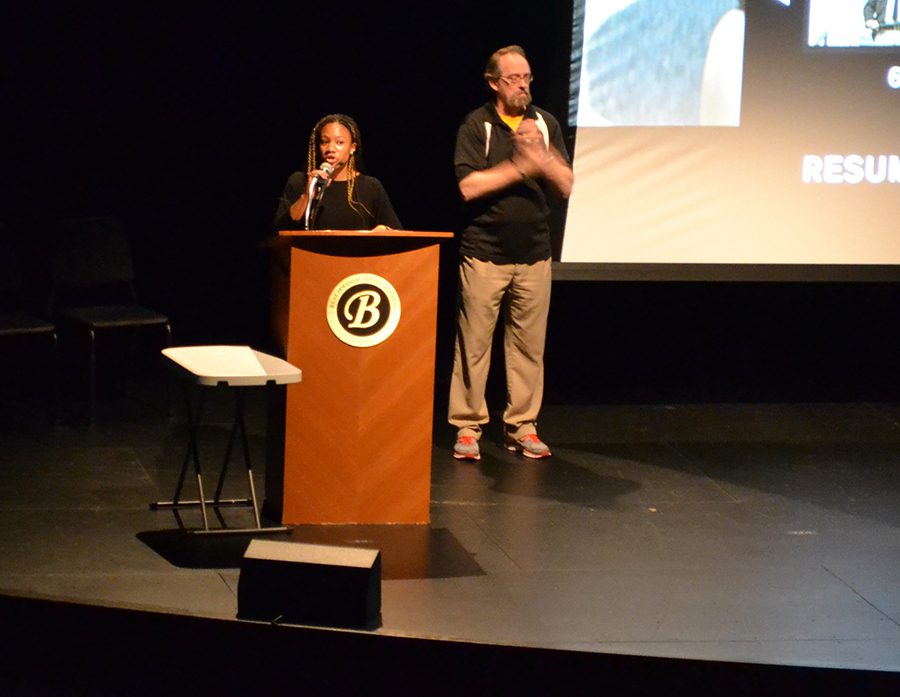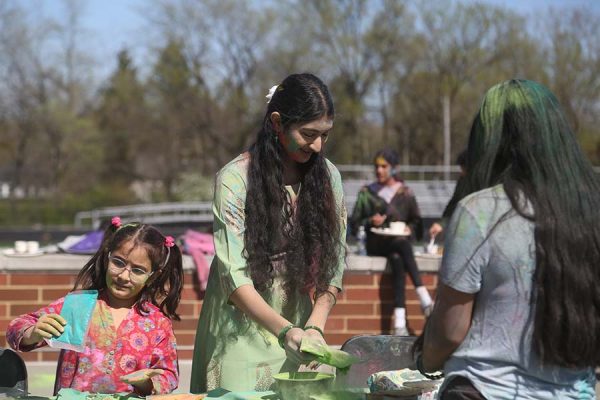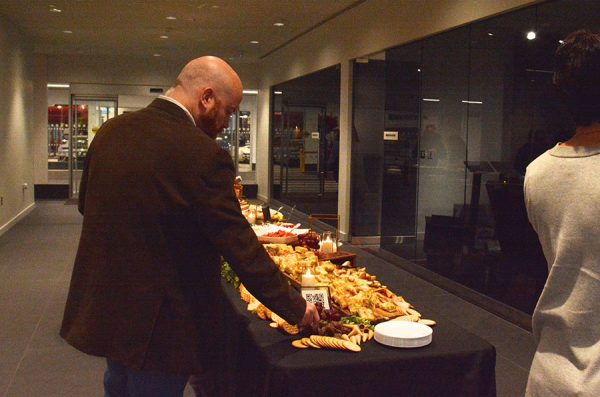MAC Scholars Bring History to Life Through Film
The Multicultural Achievement Committee (MAC) Scholars organized the Black History Month assembly for the afternoon of Feb. 24.
The goal was to raise awareness about transformative events in African American history.
“The purpose of the assembly was to show the historical events and bring more awareness,” MAC Scholars President Katelyn Howell said.
The Scholars used clips from the films Selma and Race, focusing on pivotal moments from civil rights history.
“We also wanted to show scenes in which people of different races united together to bring about change,” she added.
Many students were excited, as this was the first full-length assembly for the entire student body held in the new auditorium.
Students were surprised when they were asked to take out their phones to ask questions and make comments on a social media event app called Slido. The comments were projected on screens on either side of the stage.
The first clip depicted the 1964 bombing of the 16th St. Baptist Church in Birmingham, Alabama, in which four little girls were killed.
After the clip, Howell read the poem “Birmingham” by Jasmine Mans.
The poem was written in the voice of one of the girls who was killed:
“Sometimes I just be thinking like… like maybe God was too busy trying to protecting Martin to think about me!”
“I thought it was a great representation of the event,” Howell said. “And it showed the point of view of one of the girls who was in the bombing so people can understand the severity of the situation and recognize her as a real person… it could have happened to anyone.”
The next clip depicted the events of March 7, 1965, known as Bloody Sunday, in which marchers were beaten while attempting to cross the Edmund Pettus bridge in Selma, Alabama.
Several comments appeared during and after the Bloody Sunday clip.
“It’s truly sad how African Americans are treated. They say racism is dead, but it’s not dead,” one commenter wrote.
“I do not get why anyone would do such a thing,” wrote another commenter identified as ‘Max’. “This is truly the definition of a terrible event that will never be forgotten.”
After the Bloody Sunday clip, MAC Scholars Exec Board member Mia Knight addressed the student body.
“Men and women all came together seeking a change…unity does in fact bring change,” she said.
The final set of film clips depicted Jesse Owens’ tumultuous decision whether or not to participate in the 1936 Berlin Olympics, as he tried to balance his desire to compete with his desire to support his Jewish teammates who were barred from running in Nazi Germany.
Once again, the film emphasized the power of individuals from different backgrounds coming together to overcome injustice.
“[Selma and Race] are the two movies we have shown for our movie nights,” Howell said. “Hopefully, it will inspire others to come watch.”
The Scholars have hosted a series of movie nights at the high school this year, focusing on issues of racial justice.
The MAC scholars will be showing Loving for their next movie, which tells the story of Mildred and Richard Loving, a black woman and white man who challenged Virginia’s law against interracial marriage in the 1960s and ultimately prevailed in the 1967 Supreme Court Case of Loving vs. Virginia.
Date to be determined.

Michal Becker has been a staff writer for the Beachcomber since the fall of 2016. Michal writes in-depth news articles on important topics relevant to...













